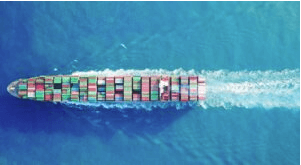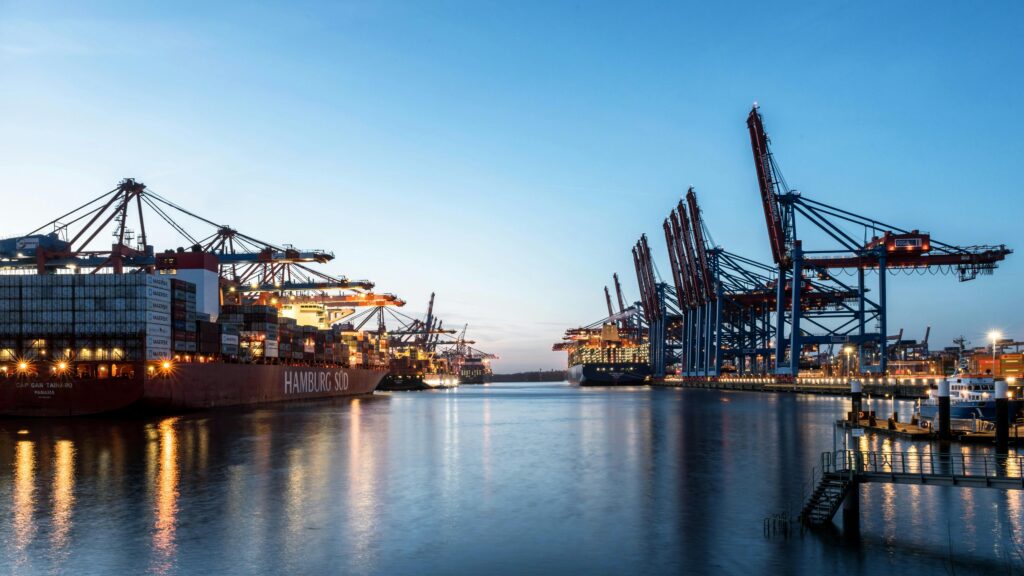News Update – 03.03.2022
Following the latest developments around the current situation undergoing in Ukraine and neighbouring affected countries, these are the latest updates.
Air Freight:
- Ukraine and Moldova airspaces are closed to all commercial airlines
- Over 35 countries, including the US, EU nation block and Canada, have banned Russian airlines from flying in their airspace
- Russia blocks airspace for the US, Germany and 35 other countries, as a reaction to the airspace closures of several countries for Russian aircraft
- Flights will be re-routed further south through the Middle East
Sea Freight:
- Several shipping lines announced that they temporarily suspend services to Russian ports in response to the sanctions imposed on Russia
- Delays may develop due to the Russian invasion of Ukraine, as vessels are trapped at ports or need to be rerouted
The situation in the Rail environment remains largely unchanged.
Rail Freight:
- Rail Freight is still operating, although new rail bookings are not accepted by most companies anymore
- All borders are still open right now, but disruptions are to be expected
Background
The conflict between Russia and Ukraine is currently causing concern around the world. Russia has recognized the two pro-Russian separatist regions of Luhansk and Donetsk in eastern Ukraine as independent states and has launched a military assault on neighbouring Ukraine. Last week local authorities in Kiev confirmed the penetration of pro-Russian forces into the territory controlled by Ukrainian government units. Russian military vehicles are thus reported to have crossed the border at several points in the north, south and east, including from Belarus. Thus, Ukrainian President Volodymyr Selenskyy declared a state of war after military targets near major cities were bombed. In recent days, the EU had already imposed sanctions against Russia and the affected areas in eastern Ukraine in response to the breach of international law, which are to be strengthened once again as a result of recent developments.
What do current developments mean for logistics?
Even though the full extent of the impact cannot be foreseen at this stage, the conflict between Russia and Ukraine is also likely to have an impact on our global supply chain and commodity prices. In addition to the disruptions, particularly in the area of rail freight, the events could also further exacerbate global supply chain inflation. Especially focusing on the energy sector and the food and commodities sector, as Russia is the main supplier of natural gas to the EU and also a major exporter of crude oil. Prices for natural gas and crude oil had already risen sharply, partly due to the prospect of conflict in eastern Ukraine.
So far, the impact on supply chains is still limited. However, further developments could change these circumstances. If any relevant changes emerge, we will keep you updated in this blog post.
Impact on Rail, Air, and Sea Freight
At the moment, rail freight around the affected areas is still functioning. The operating companies in rail freight are already planning to switch to alternative routes should the conflict intensify further and border closures occur. Given the uncertain development of the situation, we recommend using available sea freight capacities at the present time.
Related to air freight Ukraine and Moldova airspace remains closed to all commercial airlines. Due to current airspace restrictions, a general decline in air cargo capacity and availability is expected. As a result, the ban on Russian airlines in various airspaces and the possible need to reroute future flights may lead to longer flight times and a rate increase.
Sea freight has so far been largely unaffected by the conflict between Russia and Ukraine. However, shipping insurance premiums for the Black Sea and the Sea of Azov had already increased sharply by mid-February, as they were classified as risk areas at that time. The additional costs for shipments to and from the region are usually spread over the cargo, so freight rates for shipping cargo to and from this area are likely to become more expensive.
In any case, freight rates could continue to rise as a result of developments, including increased fuel costs. Although the availability of bunker oil is not directly limited by the conflict, the high oil price has a ripple effect on bunker oil prices, according to experts. Moreover, there is some risk of cyber-attacks by Russian hackers, leading to ship failures, as industry voices have pointed out. Since the situation in ocean freight is already strained in the current situation, this could possibly reduce capacity further, which would impact the level of freight rates.
How Forto Can Help You Overcome these Challenges
At this stage, no one can predict how things will develop in the conflict between Russia and Ukraine. At Forto, we are taking a proactive approach, including keeping you up to date on the latest developments here. Furthermore, we have set up a task force with representatives from all corporate functions relevant to rail, air and sea freight in order to be able to act as quickly as possible. We inform our customers about the impact of the situation on their freight in a timely manner and on a regular basis through our account managers.
Rail freight in the affected areas
In the event of border closures and associated disruptions or delays in transit time, we will promptly notify our customers with booked freight and explore alternative options, for example, transporting the goods by air or sea freight, to expedite the delivery of the goods. Depending on the shipment status and with the permission of Polish railroad authorities and companies, a COD (Change of Discharge Point), for example, could be a conceivable option.
Solutions for air freight
In the event that the airspace over the conflict area is fully closed, airlines will have to reroute their flights over the Middle East. Under certain circumstances, this may lead to longer transit times and higher rates. If this is the case, we will also proactively inform customers who are affected by the changes.
Do you have further questions? With Forto, you always have a reliable partner at your side to take care of your supply chain. We will inform you immediately if one of your shipments is affected and discuss with you the further course of action as well as all available options. If you have any questions, do not hesitate to contact us via e-mail.








